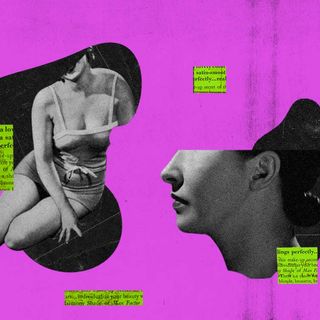
In an ‘Eat the Rich’ Era of Discourse, ‘The White Lotus’ Delivered
TV and movies — including season 1 of The White Lotus — have been grappling with the destructive callousness of the 1%. Season 2 looks beyond.

This article contains spoilers for season two, episode seven of ‘The White Lotus.’
If season one of The White Lotus was about exploring the space that the wealthy and powerful take up — at others’ expense — season two does what the zeitgeist has been clamoring for: knocking them down a peg. Or several. Or in Tanya’s case, over a yacht’s railing.
For the longest time, pop culture artefacts have attributed a beguiling grandiosity to the travails of rich people. Even with operatic sagas like Succession which offer biting critique of wealth and power, there’s an air of Shakespearean tragedy that surrounds manifestly loathsome characters, and it casts them in a light of pity. The Roy family is often framed as a Renaissance painting — with one scene in particular depicting the three siblings with profound pathos. But this artistic sensibility, when translated to The White Lotus, turns into bathos. Cue: Tanya, surrounded by palatial wealth (where art plays a key role too), embodying it herself, dying the most ridiculous death possible. It’s well-deserved, and it marks a shift in the way we tell stories about wealth.
In both seasons, we’re introduced to a cast of characters roughly divided into the American elite version of upstairs-downstairs class dynamics: the ultra wealthy and wealth-adjacent on one side, and service staff and locals on the other. But whereas the first season — as are many other stories today about the rich — was about holding a mirror up to the way powerful, privileged people topple over others’ lives with reckless abandon and move on with theirs, the second is about these very people toppling over themselves.
In a departure from how these stories usually end, the second season’s undisputed winners were two local Italian women, Lucia and Mia, who pulled a fast one on several of the season’s entitled rich men. The White Lotus subverts its own gaze from the first season: rather than portraying them as pawns in the chess moves of the elite, they snatched whatever power they could from right under their noses. All while remaining beloved characters (unlike, say, the villainization of poorer characters who were unhappy with their lot in shows like Downton Abbey).
Meanwhile, everyone else is subject to a fate worse than a tragic downfall: ridicule. Rich people have been glamorized for too long in our culture. Even when we view them with resentment, there’s a creeping undercurrent of envy. When their lavish riches aren’t displayed with spectacle, there’s a seductive aura of power and attention that surrounds them: every move is taken seriously, and everything they say carries weight. Succession embodied this aura: it hangs on every word that media titan Logan Roy says, and through dialogue shows how the stability of financial markets hinge on his words too.
Related on The Swaddle:
Why Stories About Filthy Rich People Fascinate Us
2019’s Parasite was a watershed moment in cinema, where class resentment became so mainstream as to win several Oscars. It was critique, but it also ended badly for the Kim family, who tried to work their way up into the “upstairs,” as it were. In a family of four, one is dead, one is stuck in an underground bunker, one is in prison, and one is recovering from brain surgery. They’re worse off for having acted on their envy for the fabulously wealthy Park family, and their plot to scam them is futile. This was as far as we’ve gone in terms of critiquing wealth — always ending in self-defeat and cynicism.
But when the closing shot of season two is Lucia and Mia traipsing around Sicily, all smiles, wearing color, taking up space, it’s a different, more hopeful, less reverential story about money. It’s a heist narrative laced with commentary about sex, power, and masculinity. The DiGrasso men tried to use women in their lives as bargaining chips to get the women they wanted: Albie wanted 50 grand to essentially buy Lucia’s companionship, and Dominic wanted Albie’s vote of confidence for his estranged wife. Neither realize that they’re trading in the agency of women they love — and when they fail and fall flat on their faces, that’s the “karmic payment.”
Another karmic payment? Tanya, for what she did to Belinda in the first season. And what’s even better is that nobody killed her in a fit of rage or resentment over her wealth — a trope that was starting to get tired. In struggling to figure out how to get out of the yacht, Tanya’s own goofiness was what killed her. And it’s a pointed message: a person who cannot locate the staircase on a boat, or remove her heels before jumping off it, has no business having as much power over other people’s lives as she did. That The White Lotus chose to go there speaks to a shift in our gaze when it comes to wealth. The worst thing we can do to the rich, in the end, isn’t to destroy them — it’s to laugh as they ruin themselves.
Rohitha Naraharisetty is a Senior Associate Editor at The Swaddle. She writes about the intersection of gender, caste, social movements, and pop culture. She can be found on Instagram at @rohitha_97 or on Twitter at @romimacaronii.
Related


The Feminist Debate: Is Being Objectified Disempowering?
